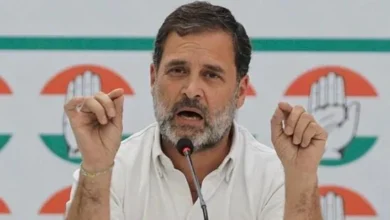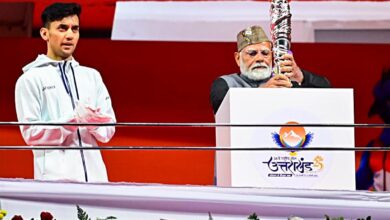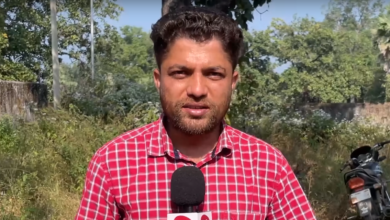Almost five years after the Covid-19 pandemic and subsequent political tensions halted them, India and China have reached an agreement in principle to resume direct flights between the two nations.
The latest indications of a thaw in the frigid ties between the world’s two most populous nations were announced on Monday, following the conclusion of a visit to Beijing by New Delhi’s top career diplomat.
One of the most senior official visits since a deadly Himalayan troop clash on their shared frontier in 2020 sent relations into a tailspin was that of Indian foreign secretary Vikram Misri to the Chinese capital.
A top envoy’s visit to Beijing resulted in an agreement “in principle” to recommence direct air services between the two countries, according to a statement from India’s foreign ministry.
“The relevant technical authorities from both sides will convene and negotiate an updated framework for this purpose at an earliest convenience,” it stated.
China had also permitted the resumption of a pilgrimage to a popular shrine dedicated to the Hindu deity Krishna, which had been suspended at the beginning of the decade, according to India’s statement.
The statement stated that both parties had pledged to exert greater effort in diplomacy to “restore mutual trust and confidence” and to address outstanding trade and economic issues.
Before the pandemic, approximately 500 direct flights were conducted between China and India on a monthly basis, according to the Indian media outlet Moneycontrol.
The agreement on flight resumptions was not mentioned in a statement from China’s foreign ministry, which stated that both countries had been collaborating to enhance their relations since the previous year.
“The fundamental interests of the two countries are fully aligned with the improvement and development of China-India relations,” the Chinese statement stated.
India and China are fierce competitors for strategic influence in South Asia.
At the onset of the pandemic in early 2020, flights between the two nations were suspended.
The public health crisis eventually subsided, and services to Hong Kong were restored. However, the Chinese mainland was not affected, as the aftermath of the deadly troop conflict that occurred later that year was bitter.
The skirmish occurred in a remote area of the high-altitude borderlands along their 3,500-kilometer (2,200-mile) frontier, resulting in the deaths of at least 20 Indian and four Chinese soldiers.
As a result of the incident, India implemented a prohibition on Chinese companies from investing in critical economic sectors and prohibited the use of hundreds of Chinese gaming and e-commerce applications, including TikTok.
In October of last year, Beijing and New Delhi reached an agreement regarding a substantial military disengagement at a critical juncture along their disputed border.
The agreement was reached just prior to the first formal encounter between Indian Prime Minister Narendra Modi and Chinese President Xi Jinping in five years.
Misri’s visit to Beijing occurred weeks following a diplomatic tour by Ajit Doval, India’s national security adviser and a significant bureaucratic ally of Modi.





